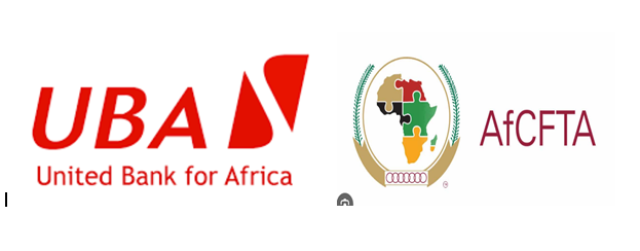Ime Akpan
Small and Medium Enterprises (SMEs) are the catalysts for growth of the world economy. They account for the majority of businesses worldwide and are important sources of employment, wealth creation and innovation.
In the developing world, SMEs make up 90 per cent of the private sector and create more than 50 per cent of jobs in their corresponding economies.
In Africa, they provide an estimated 80 per cent of jobs across the continent, representing an important driver of economic growth.
The Centre for Strategic and International Studies (CSIS) estimates that sub-Saharan Africa alone has 44 million micro, small, and medium enterprises.
In spite of their immense contribution to economic growth, SMEs in sub-Saharan Africa, nay, Africa face the greatest challenge of financing. They rely on internal funds, or cash from friends and family to start their business.
The International Finance Corporation (IFC) estimates that 65 million firms, or 40 per cent of formal micro, small and medium enterprises (MSMEs) in developing countries, have an unmet financing need of $5.2 trillion every year, which is equivalent to 1.4 times the current level of the global MSME lending.
The CSIS further estimates that only between one-third and one-fifth of SMEs in sub-Saharan Africa have a bank loan or line of credit. An estimated 28.3 per cent of firms in the region are fully credit constrained.
For its part, the World Bank says African SMEs face a staggering financial gap of $330 billion. The Bretton Wood institution also said only 25 per cent of small and medium businesses in Africa have access to bank loans, a percentage that sharply contrasts with the 50 per cent recorded in developed economies.
For these businesses to grow, create more jobs, and generate economic growth, they need access to capital.
To bridge the funding gap, the United Bank for Africa (UBA) in partnership with the African Continental Free Trade Area (AfCFTA), has floated comprehensive financing solutions of $6 billion for SMEs on the African continent.
One of the objectives of AfCFTA is to create a single continental market for goods and services with free movement of business persons and investments. Hence, experts say SMEs are poised to tap into this vast market, with 1.2 billion people across 55 member states.
With adequate support and funding, they believe SMEs could be positioned to tap into this market to experience growth and invariably create jobs.
The UBA-AfCFTA agreement which was signed on the sidelines of the 30th Afreximbank Annual Meeting (AAM) held in Accra, Ghana in June is meant to give SMEs the opportunity to access financing for small businesses that specialise in the key sectors of agro-processing, pharmaceuticals, automotive, transport and logistics.
The initiative will provide financing over the next three years to promote the development of SMEs operating in four sectors under the 1st phase of the partnership which are largely import–dependent, by providing technical and financing solutions for intra-African/domestic alternatives.
The economic sectors are agro-processing, automotive, pharmaceuticals, transport and logistics.
The deputy managing director of UBA, Mr Muyiwa Akinyemi who signed the agreement on behalf of the bank said the financial institution is committed to supporting the growth/development of SMEs across Africa in line “with our strategic focus on the SME segment being a catalyst for the economic development of Africa.”
Under the partnership, Akinyemi said “UBA will go beyond just financing to provide non-financial services to these SMEs to develop the capacity for growth across the 20 African countries that we are present, and build sustainable business practices. We shall also be leveraging technology to deliver our financing activities to the beneficiaries and this platform provides us with a unique opportunity to stimulate the development of the continent as Africa’s Global Bank.”
Also speaking, UBA’s group head, marketing and corporate communications, Alero Ladipo, explained that the $240,000 financing by the bank will be in the form of working capital loans and asset finance loans, with the aim of positioning the businesses for growth and success in the evolving African business landscape.
Specifically, she explained that the SMEs in the particular sectors of agro-processing, automotive, pharmaceuticals, transport and logistics, will be able to access a working capital loan by way of overdrafts and short-term loans with a maximum value of $120,000 in each of their country’s local currency; and asset finance loan of up to $120,000 in the local currency of the obligor, to use for the acquisition of operational assets and equipment to meet their business expansion needs.
Ladipo also pointed out that this strategic move aligns with UBA’s vision to be a catalyst for economic development across Africa, as she noted that by empowering SMEs in key sectors, the bank is fostering job creation, enhancing local production, and promoting intra-African trade, all of which are pivotal goals of the AfCFTA agreement.
In addition to financial support, she emphasised the bank’s commitment towards providing capacity-building opportunities for SMEs through various training programmes and resources, and how UBA aims to equip the businesses with the knowledge and skills needed to thrive in a competitive market environment.
“UBA recognises the critical role that SMEs play in driving economic growth and job creation. To facilitate their growth and success we are proud to be at the forefront of driving entrepreneurship in Africa.
“Our partnership with AfCFTA and our commitment to SMEs in these critical sectors reflect our dedication to the economic transformation of our continent. We believe that this initiative will not only benefit individual businesses but will also contribute significantly to the overall development and prosperity of Africa,” she declared.
For his part, the secretary-general of the AfCFTA, Mr Wamkele Mene, emphasised the need to catalyse Africa’s industrialisation and boost intra-Africa trade to improve the socio-economic well-being of the continent and its people, which he noted was a key factor behind the partnership.
“The secretariat is committed to supporting SMEs as it recognises the financing gap SMEs face on the continent and intend to mitigate this gap through this partnership.
“The identified areas of collaboration with UBA will provide the desired impetus for these SMEs to achieve the desired growth in their intra-Africa/export trading capabilities, which aligns with the objectives of the AfCFTA,” he said.
The $6 billion agreement reflects UBA’s commitment to supporting economic development in Africa and its role as a leading financial institution on the continent.
With a network spanning 1,000 business offices and 20 African countries, UBA is well positioned to facilitate entrepreneurship promote intra-African trade and contribute to the success of AfCFTA and drive economic growth on the continent.
Through retail, commercial, and corporate banking services, along with innovative cross-border payments and remittances, UBA is connecting people and businesses across the continent.
AfCFTA was established with the specific objectives and immediate tasks to progressively eliminate tariffs and non-tariff barriers to trade in goods, progressively liberalise trade in services, cooperate on investment, intellectual property rights and competition policy, cooperate on all trade-related areas, cooperate on customs matters and the implementation of trade facilitation measures, establish a mechanism for the settlement of disputes concerning their rights and obligations.
It was officially launched in January 2018 and has been ratified by 54 out of 55 African Union member states.
AfCFTA secretariat said the agreement with UBA will help to create jobs and reduce poverty on the continent as well as support the implementation of the AfCFTA agreement which seeks to create a single market for goods and services, free movement of people and investment and a unified currency for Africa.
Besides funding challenge, experts identify free movement, access to technology, slowing demand, political instability and access to the right markets, poor management, labour issues due to lack of established legal frameworks and lack of coordination as factors limiting the growth of SMEs in Africa.
Free movement for instance, is not only limited to passport acceptance. It is the ease, or possibility of travel due to cost, and duration of travel. SMEs owners in some countries complain about travel and customs costs when transiting from one country to another. Some cannot move from Country A to Country B to buy goods due to tax costs at land borders or airports.
Experts therefore charge African governments to reduce tariffs and customs duty from SMEs trading within the continent. A reduction in amount, according to them, will help SMEs with low operational funds bear the cost of traveling for business purposes.



















































